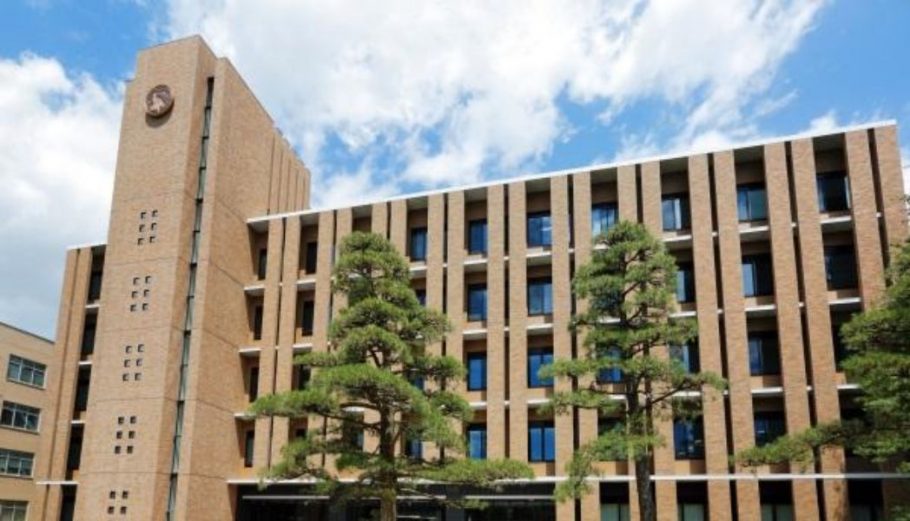Last Updated on August 6, 2024
If you want to study in Japan, you will be happy to know that Japan also wants you. The government wants to attract more international students and has set a target of 300,000 international students in the country by 2020 (it reached 100,000 in 2003). As a result, universities are focusing on making life easier for international students, from the application process to finding employment after graduation.
Japan has approximately 780 universities, with about 80% of them being private. Specialised schools and colleges offer more vocational degrees. The University of Tokyo holds the nation’s highest global ranking, placing 24th in the QS World University Rankings® 2021. Kyoto University (38th) and Tokyo Institute of Technology (56th) follow closely behind, with another 38 Japanese universities ranked among the best in the world.
Furthermore, More courses taught in English, whether partially or entirely, will undoubtedly help to attract international students. Other initiatives to attract more international students include Hiring special staff to assist international students and Allowing students to start courses in September (rather than April, when Japan’s academic year typically begins). Moreover, Recruiting more teachers from outside Japan and Increasing exchange programs with universities from other countries.
Recognising that living and studying in Japan is more expensive than in many other countries, the government has implemented additional financial aid for international students. The Ministry of Education, Culture, Sports, Science, and Technology (MEXT) and the Japan Student Services Organization (JASSO) offer various university scholarships and grants. In this blog post, we will discuss about the universities in Japan.
List of the Top Universities in Japan
Here is the list of the universities in Japan
| Rank | University | QS World University Ranking 2024 |
| 1 | The University of Tokyo | 28 |
| 2 | Kyoto University | 33 |
| 3 | Tokyo Institute of Technology | 55 |
| 4 | Osaka University | 75 |
| 5 | Tohoku University | 82 |
| 6 | Nagoya University | 120 |
| 7 | Kyushu University | 124 |
| 8 | Hokkaido University | 144 |
| 9 | Waseda University | 175 |
| 10 | Keio University | 188 |
| 11 | Kobe University | 273 |
| 12 | Hiroshima University | 306 |
| 13 | Tokyo Medical and Dental University | 307 |
| 14 | Okayama University | 362 |
| 15 | Chiba University | 369 |
| 16 | Tokyo University of Foreign Studies | 401-450 |
| 17 | University of Tsukuba | 451-500 |
| 18 | Yokohama National University | 501-550 |
| 19 | Shibaura Institute of Technology | 551-600 |
| 20 | Gifu University | 601-650 |
Description of Universities in Japan
The description of the universities in Japan is as follows below:
University of Tokyo
The University of Tokyo, or “Todai,” remains Japan’s top university in the world rankings, with a solid global reputation in various disciplines. The University of Tokyo performs admirably in 40 of the 48 subjects included in the QS World University Rankings by Subject, ranking among the top 100 globally in each of these subjects. It ranks among the world’s top ten in modern languages, physics and astronomy, chemistry, mechanical engineering, and chemical engineering.
Kyoto University
Kyoto University, located in Japan’s old capital, is the country’s second-highest-ranked university. It also has a strong presence in the subject rankings, ranking among the world’s top 35 of the 48 subjects covered in the most recent edition. Several subjects, such as biological sciences, chemical engineering, civil engineering, materials sciences, modern languages, physics and astronomy, are ranked among the top 50 worldwide.
Osaka university
Osaka University, also known as “Handai” and located in Japan’s third most populous city, is ranked joint 72nd in the latest QS World University Rankings. It has a strong reputation in various research fields, ranking among the world’s best for 27 subjects, including the top 50 in chemistry, chemical engineering, physics and astronomy, dentistry, and materials science.
Tokyo
Most people associate Tokyo with neon signs, congested traffic, and even more neon signs. But Japan’s capital is more than just bright lights, though plenty exist. Away from the main highways and the constant turnover of new gadgets in Akihabara (“electric town”), there are more peaceful pleasures: shrines and temples, traditional gardens and teahouses, noodle bars, and fresh sushi.
Tokyo also has hundreds of colleges and universities, including Japan’s top-ranked institution, the University of Tokyo. Tokyo Institute of Technology, Japan’s third highest-ranked university (56th overall), is also located here.
Despite being ranked as one of the world’s most expensive cities in the annual Mercer Cost of Living Survey, Tokyo does not have to break the bank. That is, as long as you avoid taking taxis, dining at Aragawa (one of the world’s most expensive restaurants), and spending too much time in the famous arcades.
Kyoto
Kyoto, known as Japan’s cultural capital, has 17 UNESCO World Heritage sites and is at the top of many students’ lists for exploring Japan’s rich history – but it is still in the past. Today, the city’s historical sites are surrounded by thriving industry and commerce and an annual calendar of festivals and cultural events.
Moreover, Kyoto University is Japan’s second oldest and second highest-ranked university, currently ranked 38th in the QS World University Rankings. Kyoto Institute of Technology is also well-regarded, with over 30 colleges and universities to choose from. Even if you do not decide to attend a university in Kyoto, it is a must-see destination during your trip to Japan.
Osaka
Osaka has long been a meeting and exchange hub, serving as an international trade, politics, and knowledge gateway. Today, Osaka remains an essential economic and cultural hub, with a large and diverse population and an economy larger than some countries. Kyoto, a cultural hotspot, is only about 40 kilometres away, but Osaka has plenty of art exhibitions, live music, drama, and excellent and diverse cuisine. Universities in Osaka also hold their own, with Osaka University ranked joint 72nd in the QS World University Rankings.
Admission to Universities in Japan
Admission to the best university in Japan is easy as the
GPA (grade point average) or other assessment grades are not mandatory. However, students applying to Japanese universities must take entrance exams. The ‘Examination for Japanese University Admission for International Students (EJU)’ is a standardized test for foreign students that assesses basic academic skills in science, mathematics, and ‘Japan and the World’. Approximately 95% of national universities, 65% of public universities, and 44% of private institutions require the EJU for admission.
Many universities also require incoming students to complete an additional exam. Although the EJU can be completed at test centres throughout Asia, prospective students frequently travel to Japan to take these institution-specific exams. The test fees range from ¥7,560 to ¥14,040 (US$67-$125) depending on the subjects taken. It is offered twice a year.
In addition to the entrance examinations, applicants will likely be required to submit a completed application form, academic transcripts, proof of sufficient funds to cover tuition fees, academic references, a valid passport, and a couple of passport-sized photographs.
Visa Requirements for Japan
International students who plan to study for more than three months in Japan must apply for a student visa. To do so, you must first obtain a Certificate of Eligibility, which will be used on your behalf by the Japanese institution where you have been accepted. Once this has been issued, you must apply for your visa at your local Japanese embassy or consulate. In addition to the original certificate of eligibility (and an additional photocopy), you must submit a valid passport, a completed application form, and a recent passport-sized photograph.
Suppose you want to work in Japan while studying. In that case, you must obtain ‘Permission to Engage in Activity Other than that Permitted by the Status of Residence Previously Granted,’ which you can apply for at an immigration bureau once you arrive in Japan. This permission generally allows you to work up to 28 hours per week during term time and eight hours per day during official holidays.
Tuition fees, living costs & funding
| Category | Cost in Japanese Yen (¥) | Cost in US Dollars (US$) |
| Tuition Fees (Annual) | ¥535,800 – ¥1,725,966 | $4,760 – $15,340 |
| The University of Tokyo Tuition | ¥535,800 | $4,760 |
| Osaka University Tuition | ¥535,800 | $4,760 |
| Admission Fee | ¥282,000 | $2,500 |
| Examination Fees | ¥4,000 – ¥30,000 | $36 – $270 |
| Average Monthly Living Cost | ¥89,000 | $790 |
| Annual Living Cost | ¥1,068,000 | $9,480 |
| JASSO Monthly Budget | ¥102,000 | $905 |
| JASSO Annual Budget | ¥1,224,000 | $10,860 |
Wrapping up!!
Japan aims to attract 300,000 international students by 2020, with 780 universities, 80% private, offering vocational degrees. The University of Tokyo and Kyoto University are among the top 38 universities globally. Initiatives include English courses, exceptional staff, September start dates, international teacher recruitment, and exchange programs. The government offers financial aid through scholarships and grants. Osaka University, ranked 72nd in QS World University Rankings, is a top research institution. Tokyo offers affordable living options and 17 UNESCO World Heritage sites. Admission to Japanese universities is easy with a standardised test and a valid passport.
FAQs
What is the top university in Japan?
The University of Tokyo is widely regarded as the top university in Japan, renowned for its academic excellence and research output.
Is Japan cheap for study?
Studying in Japan can be expensive, with tuition and living costs relatively high, especially in major cities like Tokyo and Osaka.
Which university in Japan is best for international students?
International students highly regard the University of Tokyo for its extensive support services, English-taught programs, and global reputation.
For which study is Japan best?
Japan is best known for its advancements in technology, engineering, robotics, and automotive studies, making it a prime destination for students interested in these fields.

Kanishka Garg specializes in crafting informative content on study abroad education. Her passion lies in simplifying the journey for students through SEO-optimized articles and blogs. Kanishka’s commitment to clear communication and her deep understanding of international admissions processes make her blogs essential for students aiming to gain insights into top universities worldwide. With Kanishka’s blogs, students can confidently get solutions to the complexities of applying to their dream universities and achieve their academic aspirations abroad.




